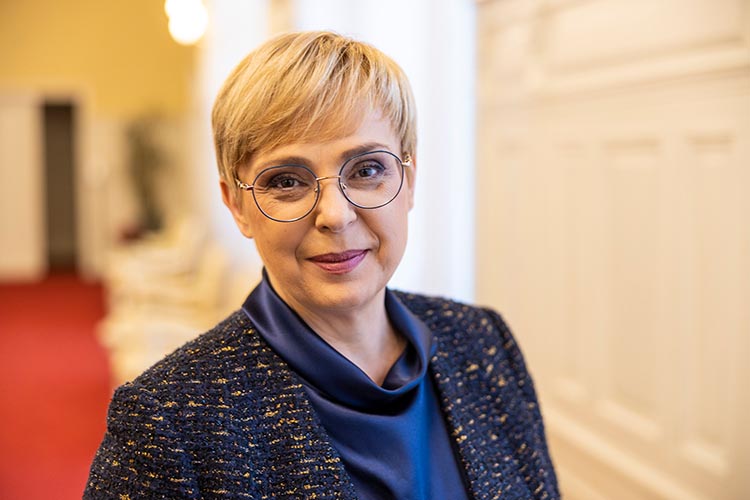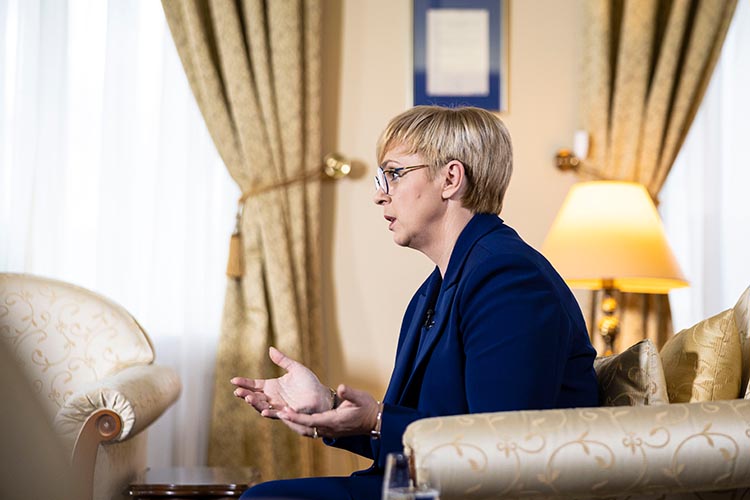Europe is in a hurry because it needs to catch up with the emerging and existing superpowers that take up ever more spheres of influence in international relations. If Europe wants to play a role on the international front as one, it needs to be at least cohesive, if not united. It needs to act fast. Of course, it isn’t only up to Europe and the European Union, but it is also up to Serbia to speed up the process
During her recent visit to Belgrade, Slovenian President Nataša Pirc Musar noted the importance to the region of the Brdo-Brijuni Process, in contrast to the claims of many analysts that this process is reaching a dead end: I sense that the time is right to bring more content to this process. There are many issues in the region that we politicians disagree on how to resolve. But there are quite a few other issues that we agree concern us all and on which swift joint action is hence needed: climate change and the brain-drain of young people are but two of them. I hope we can focus on these issues. This would send a strong message of cooperation to the region.
Madam President, how would you assess the results of your recent visit to Serbia?
– In a very positive way. President Vučić and I agreed that Slovenia and Serbia cooperate strongly in the field of economics, but also in other areas. We agreed that the Brdo-Brijuni Process should continue, which I personally find to be a very important message for the region and for Europe. Of course, we did not shy away from topics where we see things differently.
You’ve emphasised the fact that the Western Balkan countries are among the first destinations that you’ve been visiting as president of Slovenia. How important is this region to you and why?
– Indeed, my first visits are taking place in concentric circles, so to speak. I wanted to visit all the capitals of our neighbours, for obvious reasons. You need to live in an environment with friendly neighbours in order to lead healthy international relations.

The Western Balkans is the region with which we, in Slovenia, share a lot: history, economy, friendships, rivalries. For some of us who are old enough, even the language isn’t a barrier. It is impossible for one to ignore these facts.
You stressed the importance of the regional Brdo-Brijuni Process during your visit to Belgrade. However, many analysts see that process reaching an impasse. How do you see the future of this initiative?
– I beg to differ, but let me first stress what I have been stressing since my first day in office. I commend my predecessor, Mr Borut Pahor, for co-launching this important political initiative. I pledged to both him and voters that I would try to continue with the process.
Slovenia is an initiator of the digitisation of the common archival materials of the former SFRY, which would make digital copies of them accessible to the national archives of all successor states
So, about the impasse – I sense that the time is right to bring more content to this process. There are many issues in the region that we politicians disagree on how to resolve. But there are quite a few other issues that we agree concern us all and on which swift joint action is hence needed: climate change and the brain-drain of young people are but two of them. I hope we can focus on these issues. This would send a strong message to the region: cooperation, not conflict, is the name of the game for the future.
You’ve said that you hope Serbia “will join the diverse European family as soon as possible, because Europe is also in a hurry”. Could you explain this statement further?
– Europe is in a hurry because it needs to catch up with the emerging and existing superpowers that are taking up ever more spheres of influence in international relations. If Europe wants to play a role on the international plane as one, it needs to be at least cohesive, if not united. It needs to act fast.

Of course, it is not only up to Europe and the European Union, but it is also up to Serbia to speed up the process. I am fully aware of how difficult this process is, but you know very well what the big picture is here: Europe will not be competitive internationally if it can’t be cohesive internally.
Does Serbia’s EU accession depend on it accepting the independence of Kosovo, first and foremost in the context of UN membership?
– In my entire professional life, I have always consciously avoided speculative answers. I hope you will understand that I prefer to keep up this habit. But what needed to be said is that Serbia and Kosovo should find a solution to ease the tensions. The current situation does not help the EU or either country. The whole Western Balkan region is not progressing fast enough. I see a lack of political will, but – to be honest – the EU also has to do its share.
Your comments on the protests in Serbia and media freedom, which you gave during a joint public address with the President of Serbia, have attracted far and away the most media attention. Did you respond as a president or as a former journalist?
– Permit me a small correction here. I was not commenting on protests in Serbia. I reacted because I thought it was important to put the journalist’s question in perspective, within the context of values that I hold dear.
There are quite a few issues that we agree concern us all and on which swift joint action is hence needed: climate change and the brain-drain of young people are but two of them
So, the answer is: I reacted as a person guided in life by a set of certain norms and values that I shall never abandon.
You’ve cited the archives and succession as being issues that require further harmonisation between our two countries. Where do the biggest problems lie?
– Slovenia is an initiator of the digitisation of the common archival materials of the former SFRY, which would make digital copies of them accessible to the national archives of all successor states. It is right that we have orderly and transparent access to our common history.
In which directions could economic cooperation between Slovenia and Serbia continue to develop?
– I expect trade between the two countries to reach almost €2 billion again this year, following last year’s record numbers. Slovenia is one of Serbia’s most important investors and economic partners. More than 1,500 Slovenian companies employ 25,000 workers in Serbia. But I always say that it’s never so good that it can’t get better. This can be made possible, in particular, by further improving freight routes, for example.
| EUROPE Europe will not be competitive internationally if it can’t be cohesive internally | INVESTMENTS Slovenia is one of Serbia’s most important investors and economic partners | SFRY DIGITISATION It is right that we have orderly and transparent access to our common history |
|---|
Photo: Matjaž Klemenc UPRS